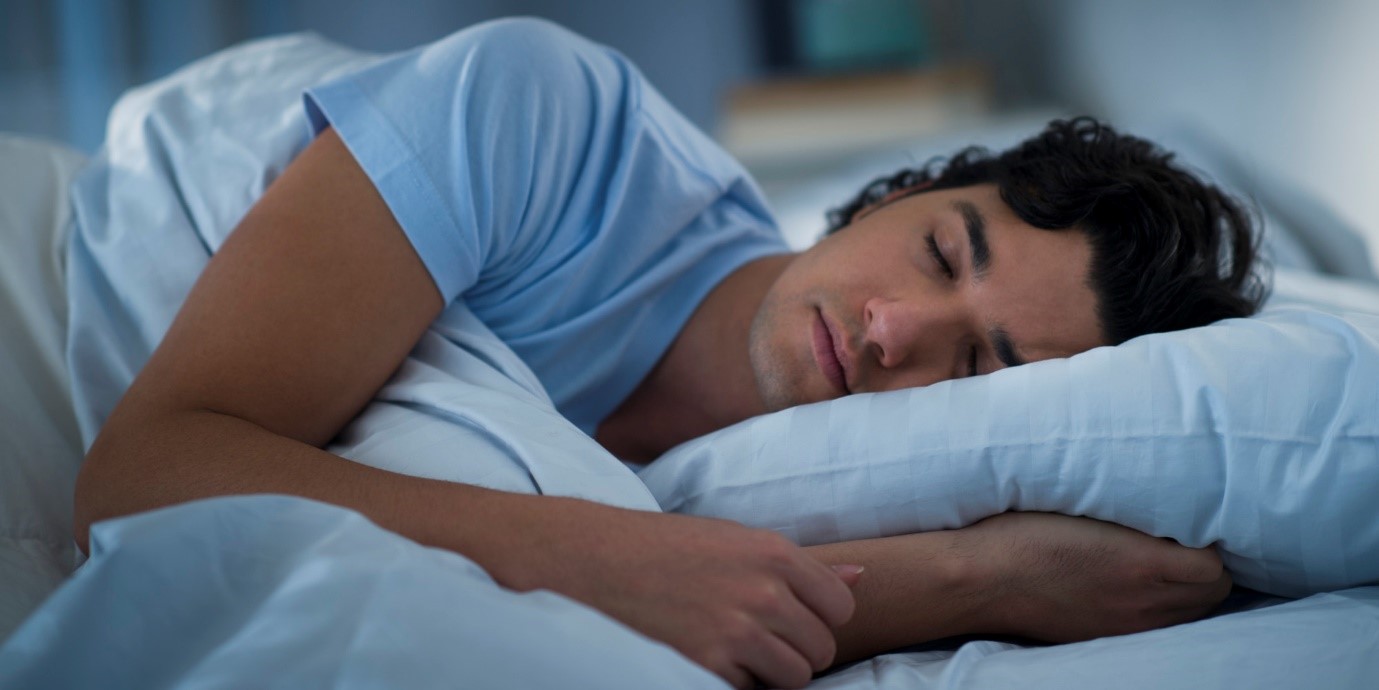Having a good night’s sleep is essential for anyone who wants to be as energised, productive and healthy as possible. Quality rest is critical to ensure we are alert and that our brains and bodies have the time to recuperate after a long day. Insomnia and poor sleep are common concerns for adults in the UK, so it is worth doing all you can to ensure you get the best possible night’s sleep.
You will need to get the right combination of a good sleep environment, the suitable routine before bed, and an overall healthy lifestyle to help you get the best sleep. Even the smallest things can make a big difference to your quality of sleep.
Get The Right Mattress
Your mattress is one of the most important things when it comes to getting a quality night’s rest. As a general rule, you should replace your mattress every seven years. If you notice that you’re not getting the right support from your mattress, you may need to replace it sooner. Some signs that you should replace your mattress include waking up with aches and pains, lumps, sagging or depressions in the mattress, or waking up tired.
When selecting a new mattress, you should always test it out in person. Try a range of mattresses to find the right fit and discuss any specialised needs you have with a salesperson. A mattress is an investment, so you should be prepared to pay for the best quality.
Decorate Your Bedroom In Calm Colours
When decorating your bedroom, it is best to avoid bright colours that may overstimulate your mind as you get ready to go to sleep. Save any vivid colour or bold patterned wallpaper for other rooms like the living room or kitchen. Sticking with neutral shades can be ideal for the bedroom. Colours like greys, blues, greens and pastels can be perfect to create the optimal sleep environment.
Set A Sleep Schedule And Stick To It
Having a set time to go to bed and wake up each day can be invaluable. By having a schedule you stick to, you will get into a good sleep routine. This will result in your body automatically becoming ready for sleep at a certain time. It will also help you wake up consistently and on time in the mornings, without feeling sleep deprived. It may be tempting to sleep in on the weekends, but ideally, you should stick with your routine no matter what.
Exercise Earlier In The Day
Exercise is important to keep your body healthy and strong throughout your life. If you find it difficult to get to sleep at night, upping the amount of time you spend exercising in the day can be helpful to tire you out before bed. However, you should avoid exercising two to three hours before you plan to sleep, as this may result in difficulty nodding off.
Keep Chores Out Of The Bedroom
Many people use their bedrooms to do routine chores like ironing or folding laundry. This can make your mind start to associate the bedroom with things other than sleep, which can impact the quality of your rest at night. It is best to keep the bedroom as a place for sleep only. This should also include working on your computer or browsing the internet before bed.
Use CBD Oil Before Bed
CBD oil has seen skyrocketing popularity in recent years, and one of its many benefits is as a sleep aid. CBD helps alleviate anxiety and stress, promoting relaxation and helping you get quality sleep as a result. You should always look for CBD oil from a trustworthy source.
It’s worth doing your homework to learn what kind of CBD oil you could benefit from and learn more about the available doses. For an idea of what to look for, you can get CBD oil in the UK from the experts at The Good Level.
Go Outside In The Daytime
Getting out into the sunlight can have an incredible impact on your circadian rhythm. This can be particularly beneficial if you deal with insomnia regularly. Going out into the sunlight reminds your body that it is daytime and time to be awake and energised. By the time it gets dark, and you head to bed, your body will be better able to recognise that now is the time for sleep.
Use Blackout Curtains At Night
Setting the right tone for your sleep at night is crucial. Investing in blackout curtains can be an excellent way to ensure that your sleep isn’t interrupted by outside factors like car headlights, street lighting, and outside noise. Look for blackout curtains that cancel outside noises for the best sleep environment.
Avoid Using Your Smartphone Before Bed
Using your smartphone before bed can result in poorer quality sleep. This is because the blue lights produced by phones and other electronic screens can interfere with your circadian rhythm. It is best to put your phone away an hour or two before bed. You could read a book or meditate before bed instead to set yourself up for quality sleep.
Cut Out Caffeine Before Bed
This one may go without saying, but caffeine before bed is very likely to result in poor quality sleep. Ideally, you should try to cut out caffeine from your diet altogether. If this is not realistic, it is best to avoid caffeine after midday and ensure you don’t have any caffeine three to four hours before you plan to sleep. Decaf coffee and tea or herbal tea can be great alternatives for hot drinks with minimal caffeine.
Meditate Before Bed
Meditation can be the perfect thing to help you get ready to sleep. Meditation is a type of exercise for the mind that can boost relaxation, ease stress and calm your mind. You could try some meditation exercises in bed before turning the lights off for the night. Ensure the room is gently lit and there are no distractions or potential interruptions.
Leave Your Bed If You Can’t Sleep
If you’re finding it hard to drift off to sleep, it is best to get up and out of bed instead of tossing and turning. The more you think about trying to sleep, the harder it will get to nod off. Instead, go downstairs and drink milk, water or herbal tea. Avoid anything that will stimulate you, like turning on the TV or drinking alcohol. Only return to bed when you’re feeling sleepy again.
Avoid Naps Longer Than 20 Minutes
If you have a nap in the daytime, it is best to ensure you sleep for no longer than 20 minutes. More than this and you will start to disrupt your natural circadian rhythm. Sleeping for more than 20 minutes will mean you’ll fall into a deeper sleep, making it harder to wake and leaving you groggier. A 20-minute nap is ideal for helping keep you refreshed and ensure you can still get a good night’s sleep later.
Try Out Some Ear Plugs
If you live somewhere with a lot of noise pollution, noise cancelling curtains may not be enough to keep the sounds at bay. Fortunately, earplug technology has come a long way in recent years. You can find earplugs that cancel out everything from ambient noise to complete noise-cancelling plugs.



